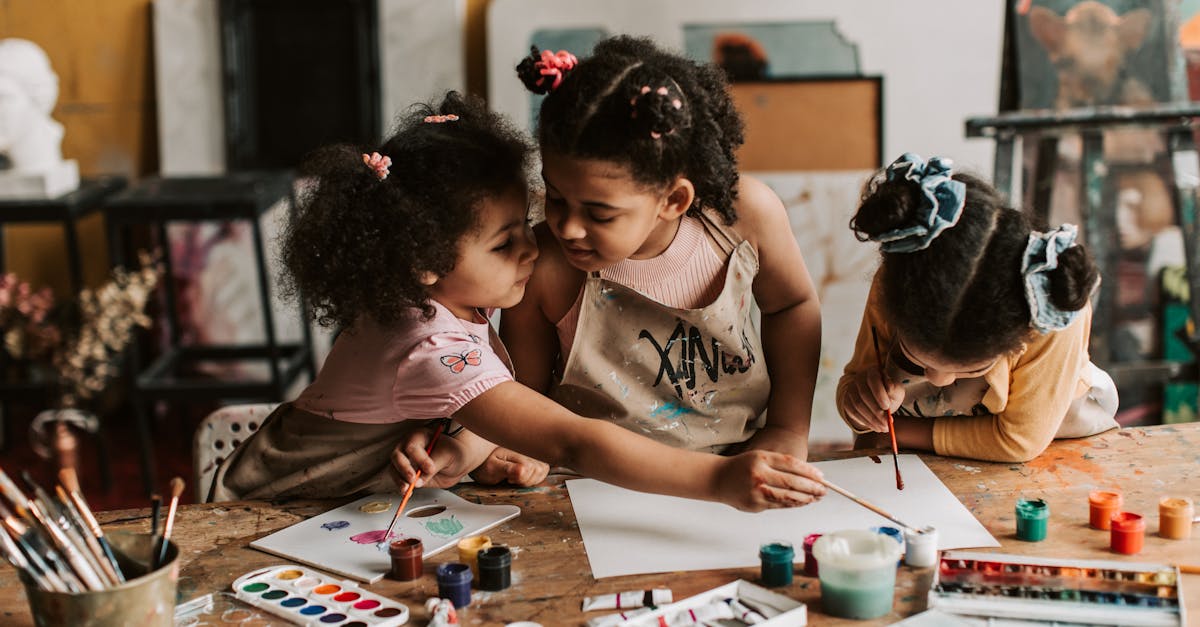Understanding Love and Kindness
Love and kindness are two key virtues. They’re often overlooked in traditional preschool settings. Teaching these concepts in Sabbath School provides a spiritual angle.
Introduce preschoolers to loving language using simple words they understand. Remember how your adorable child first hugged their teddy bear? That’s the innocence we aim to capture. Explain love through everyday actions.
Maybe use cookies. Yep, cookies can be love tokens with toddlers involved! Give one cookie, and the love circle increases as sharing begins. Using relatable examples helps them grasp these ideas quicker.
Reinforce Love and Kindness in All Activities
Children mimic what they see. If they see generosity, they’ll practice it. This is crucial! Preschoolers love imitating parents. So, load up on compassion, hugs, and amazing smiles.
Visual Inspiration

By embedding these virtues into their daily activities, you create a nurturing environment where love and kindness flourish.
Creating Fun Activities
Activities are the lifeline of engaging lessons. Explore fun group activities that encourage friendships. How? Think games and crafts. Remember the last time you tried surviving a kids’ art project? Yes, it was messy but oh so fulfilling!
Crafting is not just decorating but learning to work together. Let them create friendship bracelets. But beware! Glitter will spread! Here’s a bonding opportunity. When mess happens—because it will—you can laugh about it together.
Fun aside, these activities reinforce the idea of sharing and collaborating.
Games to Foster Friendship
Games like ‘Friendship Tag’ cultivate team spirit. Set simple rules that ensure kindness remains central. Celebrate shared victories to boost self-esteem.
More Ideas for Group Activities
- Arts and Crafts Projects
- Outdoor Team Games
- Cooking Together
- Music and Dance Sessions

Incorporate these engaging activities into your lessons to create lasting memories and friendships!
The Power of Storytelling
Storytelling has an undeniable charm. Kids love stories, and you should leverage this in lessons. Remember that kid who wouldn’t sleep without a bedtime story about dinosaurs? Stories captivate imagination.
Pick tales that embody themes of love and friendship. Use colorful puppets or even quirky voices to animate the characters. Think of it as a mini-stage drama!
Narratives have lessons embedded in them that can address complex feelings. Discuss these feelings post-story. Ask questions! You may discover surprising insights into their thoughts on friendship. This method not only makes lessons memorable but also easier to digest.
Encourage them to retell the stories in their own words.

Incorporating Bible Teachings
The Bible is an ideal resource for teaching moral lessons. Select simple Bible stories centered around love and friendship. Think of stories like ‘The Good Samaritan’ or ‘David and Jonathan’. These stories teach compassion and loyalty.
Convey biblical teachings in an age-appropriate way. Avoid the mumbo jumbo and stick to plain language. Kids relate more when visuals are involved.
Using Role-Playing to Engage Children
Here’s where costume time comes in! Role-playing simple scenes can be insightful and hilarious. Watching a few preschoolers trying to emulate grown-ups is comic gold.
- Encourage children to identify with characters.
- These stories lay the groundwork for a lifetime of empathy.

Overcoming Emotional Challenges
Teaching emotional skills isn’t always easy-peasy. Preschoolers face emotional challenges, so be patient and flexible. These tiny humans, despite their boundless energy, can experience overwhelming emotions like jealousy or shyness.
Ever seen a kid sulk because a friend didn’t choose them for a game? It’s heartfelt but also revealing. Here are some strategies to help little ones navigate their emotions:
- Encourage naming emotions: When they name their feeling, they can understand and express it better.
- Show empathy: Share your own experiences. Let them know everyone has emotions.
- Offer simple coping techniques: Teach them skills such as deep breaths or finding a trusted grown-up for support.
Addressing emotional challenges early builds resilience.

Parental Involvement
Parents play a crucial role in reinforcing lessons at home. Get involved! Encourage your child’s participation in Sabbath School activities. Remember, school doesn’t end at the door—it’s simply where the homework begins.
Share your child’s excitement. Simple questions about their day can lead to epiphanies! Asking, ‘What was the best part of class today?’ can fuel the conversation. Be ready for tales of crayons and giggles.
Collaborative Learning Nurtures Fellowship
Attend parent-child events or church activities to model good behaviors. Witnessing friendship building firsthand allows you to guide your child effectively. And let’s be real: you might find yourself needing some grown-up friendship-building too!

Encouraging Open Discussions
Encourage preschoolers to express what love and friendship mean to them. Open discussions can reveal the purest ideas, straight from childlike hearts. They may surprise you with their understanding.
Offer platforms where their views are valued. Perhaps during group circle times. Use fun tools like heart-shaped cutouts where they can jot down thoughts (or scribbles). Open dialogues inspired by questions such as, ‘How can we show kindness today?’ not only provide clear insight but teach them conversational confidence.
Reply with encouraging affirmations. These interactions build trust. They learn the beauty of expressing and listening.
Encourage readers to share their children’s heartwarming definitions of love in the comments.

